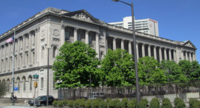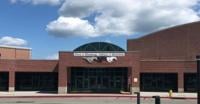
Philadelphia County Court
PHILADELPHIA – Lawyers suing over a fatal traffic accident won’t get to do so in a preferred venue known nationally for jurors who punish companies.
The Pennsylvania Supreme Court on Sept. 25 refused to allow plaintiff lawyers to pursue their case all the way across the state from where the wreck occurred. They’d wanted the case in the Philadelphia Court of Common Pleas, known for massive verdicts handed out by jurors.
But the wreck happened in Western Pennsylvania – Westmoreland County. Though the Superior Court gave attorneys the go-ahead in a previous ruling, Justice David Wecht and colleagues on the Supreme Court disagreed.
It struck them as odd the Superior Court had earlier refused to let a Dauphin County case, known as Bratic, be transferred to Philadelphia because of the travel burdens on witnesses but then let the car-wreck case move even farther.
“Where Bratic deemed Philadelphia to be a patently oppressive venue on the basis of seven affidavits from witnesses who would be required to travel 100 miles, here the petitioning defendants produced affidavits from 11 witnesses (and identified dozens more) who would be forced to travel well over 200 miles,” Wecht wrote.
“Tellingly, the Superior Court here cited Bratic only for general statements of legal standards applicable to forum non conveniens petitions, and it did not discuss the substance of Bratic’s rationale at all.”
Defendants include Federal Express, Sioux Trucking, UPS, Penske Truck Leasing and Z&D Tour. They face several lawsuits over a Jan. 5, 2020, collision that started when a bus owned by Z&D Tour found to be speeding rolled over onto its side on I-70/76 and blocked westbound lanes of travel.
Fifty-nine passengers were on the bus, which was struck by UPS and FedEx tractor-trailers. Another UPS truck hit a car swerving off the highway.
Five fatalities were the bus driver, two bus passengers and two UPS drivers. Lawyers like Edward Ciarimboli of Fellerman Ciarimboli, Michael O’Neill and David Senoff picked Philadelphia for their cases.
In 2024, a Philadelphia jury gave out $2.2 billion to a plaintiff claiming Roundup weedkiller caused his non-Hodgkin lymphoma, helping land the city as the American Tort Reform Association’s No. 1 Judicial Hellhole.
Jurors also awarded $725 million in a case alleging benzene from petroleum at an Exxon station caused a mechanic’s cancer. Philadelphia tied with Dallas County with 10 verdicts of more than $10 million in 2024.
Defendants in the car-wreck case identified state troopers, medical and emergency responders and eyewitnesses among those who would be asked to testify. Their affidavits said the travel to Philadelphia “would represent a significant financial burden” and “present significant disruptions to their personal and professional lives.”
Plaintiff lawyers countered that those witnesses could testify remotely.
“To be sure, virtual court appearance is a valuable tool when live, in-person proceedings cannot occur,” Wecht wrote. “Such technology allowed us to keep our courts open during the worst of the COVID-19 pandemic.
“But it is not an adequate substitute in the ordinary course. Importantly, absent emergency circumstances such as those brought about by the pandemic, our Rules of Civil Procedure do not provide for the virtual appearance of witnesses at trial as a matter of course.”







